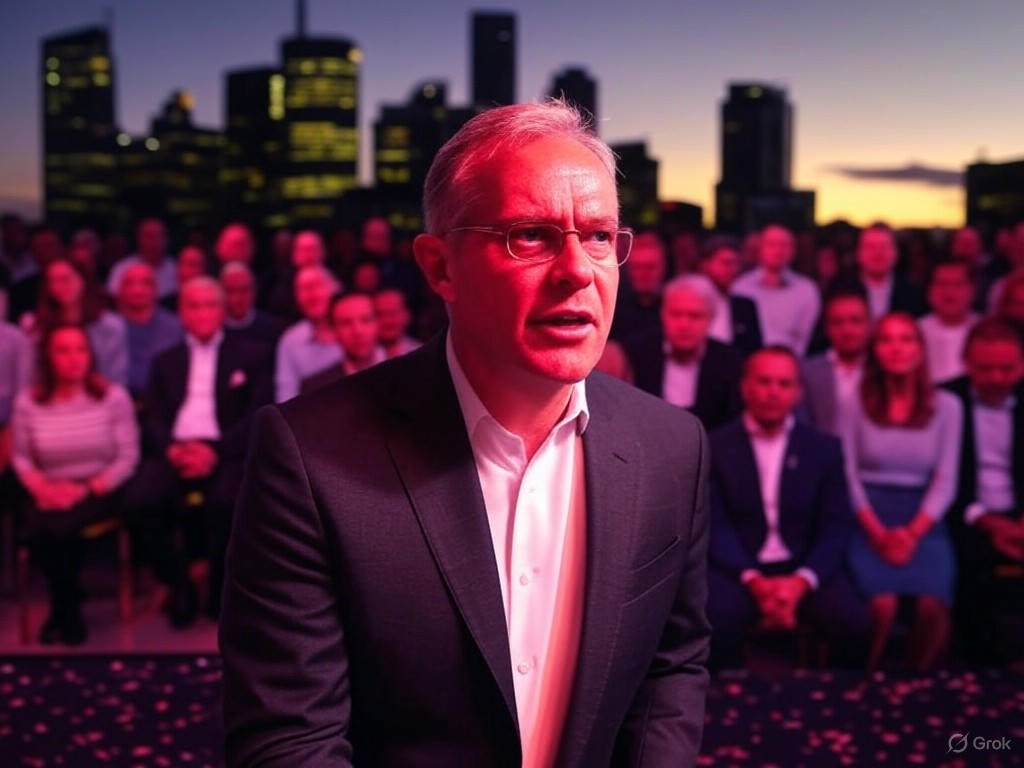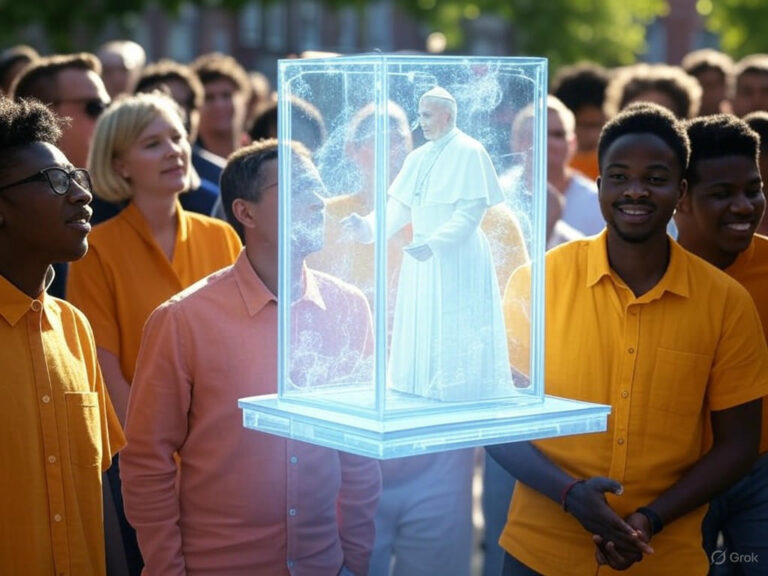
Australian Election Reaction: Bolt Blames Voters for Dutton Loss
A Snapshot of the Australian Election Reaction
The Australian election reaction has been intense since the 2025 federal vote, where the Labor government’s landslide win reshaped politics overnight. Andrew Bolt, a vocal conservative voice, didn’t hold back, directly blaming voters for Peter Dutton’s stunning defeat. This immediate backlash highlights how deeply divided opinions can get in moments like this, as Australians grapple with the implications of such a historic shift.
Have you ever wondered why election outcomes stir such passion? In this case, Bolt’s comments underscore a broader Australian election reaction, where accountability lands not just on leaders but on the public itself.
Overview of the 2025 Australian Federal Election
The 2025 Australian federal election on May 3 was more than just a vote—it was a turning point that amplified the Australian election reaction across the nation. Labor’s victory was decisive, with Prime Minister Anthony Albanese leading a campaign that connected deeply with everyday concerns. This outcome forced the opposition into uncharted territory, especially with Peter Dutton losing his seat for the first time in over a century.
Bolt’s take on this Australian election reaction quickly became a focal point, framing voter decisions as the root cause rather than party strategies. Analysts point to factors like economic pressures and social priorities as key drivers, making this election a mirror of Australia’s evolving identity.
Peter Dutton’s Historic Loss: A Quick Recap
Dutton’s defeat marked a rare moment in Australian politics, echoing a sentiment of change that fueled the broader Australian election reaction. In his concession speech, he acknowledged the Coalition’s struggles and praised Albanese’s win, showing a level of grace amid the upset. It was a symbolic end to an era, with Labor’s Ali France stepping in to claim the seat.
This event didn’t just surprise political insiders; it ignited debates everywhere, including Bolt’s sharp Australian election reaction. Key results showed Labor gaining ground through unified messaging, while the Coalition faced a significant setback.
Key Election Results at a Glance
Here’s a breakdown of the standout outcomes from the 2025 vote, which contributed to the ongoing Australian election reaction:
- Labor’s party secured a massive swing, boosting their influence in key areas.
- Peter Dutton’s loss as Opposition Leader was unprecedented, drawing comparisons to past political upheavals.
- Ali France’s victory represented a fresh face in politics, symbolizing voter desires for new directions.
- Across electorates, the Coalition saw declines, reflecting a wider Australian election reaction toward progressive policies.
What might this mean for future votes? It’s a question many are asking as the dust settles.
The Australian Election Reaction from Andrew Bolt
Andrew Bolt’s Australian election reaction has dominated discussions, as he pinned the blame for Dutton’s loss squarely on voters. His commentary, aired shortly after the results, accused the electorate of choosing comfort over bold leadership. This perspective has polarized opinions, with some seeing it as honest critique and others as out of touch.
Bolt argued that media influences and social trends swayed decisions, a view that adds layers to the overall Australian election reaction.
The Core of Bolt’s Argument
At the heart of Bolt’s stance is the idea that voter complacency played a major role in the 2025 outcome, intensifying the Australian election reaction. He suggested that people avoided tough policy debates, opting instead for Labor’s straightforward promises. For instance, Bolt pointed to how economic fears might have pushed voters toward perceived stability, rather than the Coalition’s innovative ideas.
- He highlighted voter complacency as a barrier to real change, a common theme in Australian election reactions.
- Bolt claimed the loss happened in “living rooms across Australia,” not just in official arenas.
- This narrative reveals a potential gap between conservative voices and the public’s shifting values, fueling further debate.
Imagine if every election sparked such self-reflection—could it lead to better engagement? Bolt’s Australian election reaction certainly pushes for that.
The Political and Social Context Behind the Backlash
The backlash to Bolt’s views stems from Australia’s changing social landscape, where issues like climate action and equality have amplified the Australian election reaction. Voters prioritized these over traditional conservative stances, giving Labor an edge in urban areas. This shift isn’t new; it’s been building for years, influenced by global events and local challenges.
Media outlets like ABC News dissected these factors, showing how cost-of-living issues swayed opinions. Bolt’s comments, while provocative, mirror a broader Australian election reaction that’s testing old norms.
Media Reactions and Public Sentiment
Public sentiment around the Australian election reaction has been mixed, with social media buzzing about Bolt’s accountability angle. Supporters applaud his directness, seeing it as a call for voters to own their choices. Critics, however, argue he overlooks internal party flaws, like leadership instability.
- Younger demographics online dismissed Bolt as outdated, highlighting a generational divide in Australian election reactions.
- News analyses emphasized Labor’s optimistic campaign as a counterpoint.
- This debate offers a chance for reflection: How can parties better align with public needs?
Election Analysis: Why Did the Coalition Lose?
Beyond Bolt’s view, a deeper look at the Australian election reaction reveals multiple reasons for the Coalition’s defeat. Leadership changes and policy misalignments eroded trust, while Labor’s focused strategy captured undecided voters. For example, Albanese’s emphasis on unity resonated amid economic uncertainty, a tactic that’s proven effective in past elections.
- Internal conflicts within the Coalition amplified negative perceptions.
- Policy gaps on key issues like climate change left voters seeking alternatives.
- Despite conservative media efforts, the overall Australian election reaction favored progressive momentum.
If you’re interested in politics, consider how these elements could influence your own voting decisions next time.
Comparative Data: Voter Shifts and Party Performance
To understand the Australian election reaction fully, let’s examine some comparative data from the 2025 results. While official figures from the Australian Electoral Commission are still being finalized, early trends show clear shifts.
| Party | Primary Vote (%) | Seats Won | Swing (%) |
|---|---|---|---|
| Labor | Approximately 38-42 | Increased significantly | Positive 4-6 |
| Liberal/National Coalition | Approximately 32-36 | Decreased notably | Negative 5-7 |
| Greens & Others | Approximately 12-15 | Marginal gains | Minimal changes |
This data underscores the voter shifts driving the Australian election reaction, with Labor capitalizing on dissatisfaction.
What Bolt’s Reaction Means for the Future of Political Commentary
Bolt’s Australian election reaction signals a potential evolution in how commentators engage with audiences, pushing for more voter accountability. As demographics change, conservative media faces the challenge of adapting or risking irrelevance. This could lead to richer debates, where voices like Bolt encourage self-examination.
For the Liberal/National Coalition, rebuilding means addressing these gaps head-on.
The Challenge Ahead for the Liberal/National Coalition
Moving forward, the party must tackle issues like climate policy to align with the Australian election reaction. Actionable steps include fostering stable leadership and engaging younger voters through inclusive strategies. By doing so, they could turn criticism into a roadmap for success.
- Focus on trust-building in swing areas to counter past losses.
- Reevaluate policies on economic inclusion and environmental concerns.
- Promote a vision that resonates with Australia’s diverse population.
Conclusion: A Defining Moment for Australia’s Democracy
The 2025 election’s Australian election reaction, epitomized by Bolt’s bold statements, reminds us that democracy thrives on open dialogue. It’s a pivotal time for reflection, where parties and commentators must listen to the public’s voice. As we look ahead, one thing is clear: adapting to change will define Australia’s political path.
What are your thoughts on Bolt’s perspective—do you agree with blaming voters? Share your insights in the comments below, or explore more on Australian politics through our related articles. Let’s keep the conversation going!
References
- [1] Wikipedia. “2025 Australian federal election.” https://en.wikipedia.org/wiki/2025_Australian_federal_election
- [2] YouTube. Video analysis of the election. https://www.youtube.com/watch?v=er5hJ5JP_AU
- Brulle, R. J. “Engineering the Space Age.” Air University Press, 2023. https://www.airuniversity.af.edu/…
- Government Printing Office. Congressional Record. https://www.govinfo.gov/…
- Barrett, L. F. “How Emotions Are Made.” https://jyotsnabooks.files.wordpress.com/…
- MSU Library. ETD Database Entry. https://d.lib.msu.edu/etd/48708
- Shriberg, E. CV Document. https://sail.usc.edu/shri_files/Shri-CV.pdf
- Shenandoah Library Catalog. https://shenandoah.biblionix.com/catalog/titles/
Australian election reaction, Bolt blames voters, Dutton loss, 2025 Australian federal election, political analysis, Andrew Bolt commentary, Peter Dutton defeat, Australian politics, election backlash, conservative media reaction







